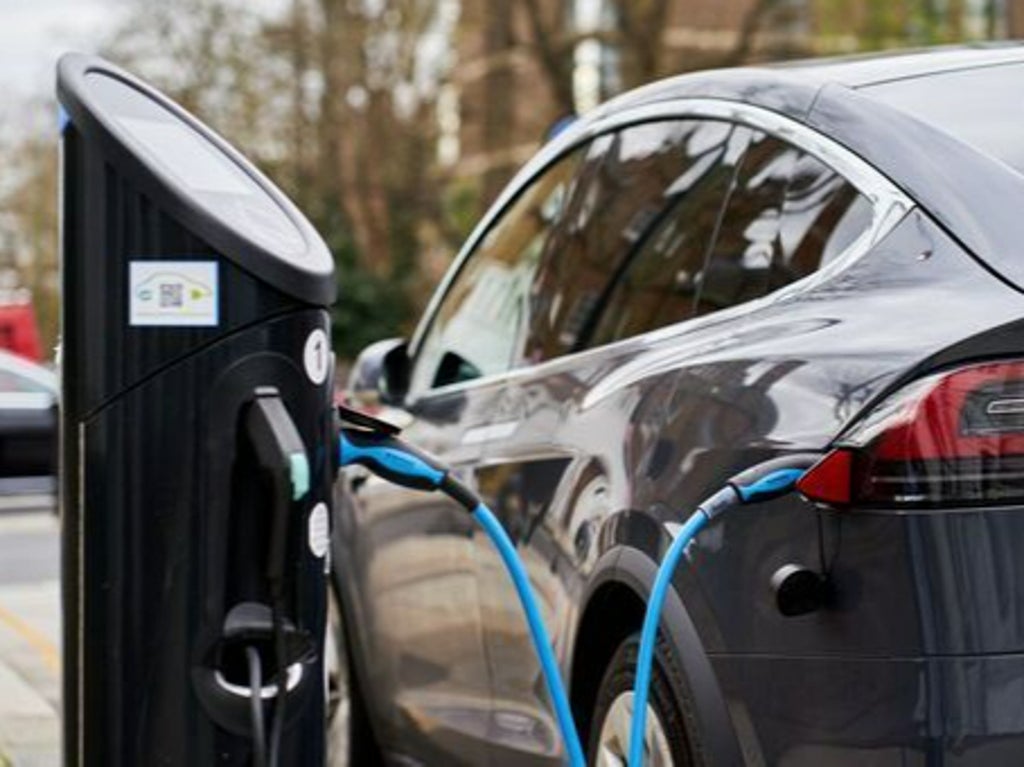
The government said Friday it will help businesses to roll out 300,000 public electric car charge points by 2030, the equivalent of almost five times the number of fuel pumps on our roads today.
The government said its plan will make charging “easier and cheaper” than refueling a petrol or diesel car, and will focus support on those without off-street parking and on fast charging for long journeys.
New legal requirements will allow drivers to pay for the charge by contactless and find new charge points using apps and the plan will require a 99 per cent reliability rate at rapid charge points to boost drivers confidence, it said.
The government has legislated to reach net zero planet-heating greenhouse gas emissions by mid-century and has said the UK will end the sale of new petrol and diesel cars and vans by 2030.
Boris Johnson said clean transport was not just about the environment but would drive down dependence on foreign energy supplies.
“It will also create new high-skilled jobs for our automotive and energy sectors and ultimately secure more sustainable and affordable motoring for all,” he said.
The government has said that £500 million pounds will be invested to bring public charge points to communities across the UK, including £450 million to boost on-street charging for those without driveways. The funding is not new, but the announcement Friday outlined for the first time where the money would be spent.
Motorist groups and those involved in the transition to electric vehicles welcomed the news but said they were concerned about the speed and scale of the rollout.
Joel Teague, CEO of electric vehicle charger sharing app Co Charger, said the company was particularly pleased to see the government highlighting the need for reliability, but said insisting that current infrastructure uses contactless payments could make the rollout slower and more expensive.
“Trust in the infrastructure is essential for an effective transition to EVs,” he said, referring to electric vehicles.
RAC head of policy Nicholas Lyes also welcomed the focus on infrastructure reliability but said the rollout may not be sufficient.
“While the Government’s expectation of having 300,000 charge points available by 2030 might sound impressive, we are concerned that this is not going to be sufficient with drivers looking to switch to an electric vehicle en-masse ahead of the 2030 ban on the sale of new petrol and diesel cars,” he said.
The AA has said to bring confidence and power to potential electric car drivers the UK needed more reliable and accessible charge points “as soon as possible.”
“The Government does appear to recognise that ease of use, reliability, slow roll-out for those without home charging and improving charging on motorways, are all essential,” Edmund King, AA president said.
In addition to this, the AA would like to see more focus on charging solutions in rural locations, improvements to safety for people charging in dark, isolated areas and accessibility for disabled drivers, he added.
A spokesman for the Department for Transport said drivers of electric cars benefit from one of the largest public charging networks in Europe. The UK’s provision of rapid chargers is the best in the Western World, according to The Society of Motor Manufacturers and Traders.
The spokesman for the department said a robust charging network will increasingly be needed and that the department estimated that by 2030, around 300,000 public charge points will be required as a minimum.







